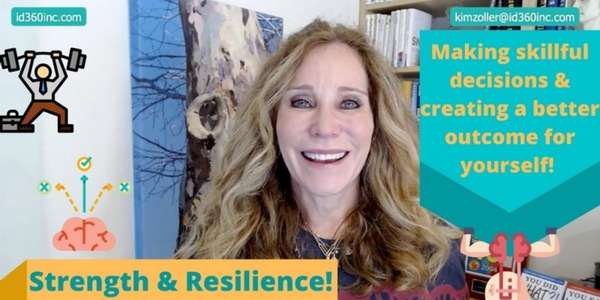SPARKS!
We all need a SPARK to ignite and sustain the fire!
We are constantly bombarded with thoughts, emotions, and external stimulations. The subconscious mind takes in thousands of messages every day, and it’s up to you to guide your focus. When you tune your brain for positivity and success, you’ll begin to notice yourself focusing naturally toward your goals and dreams. Igniting the SPARKS!
More SPARKS! Read our Blog...
Every week, grow your mind...

Mastering Emotional Intelligence: The Key to Exceptional Leadership and Team Success
Let’s be honest—leadership can feel like a juggling act. You’re managing deadlines, projects, and people, all while trying to keep your own head above water. But have you ever noticed how some leaders just seem to have it together? They connect effortlessly with their teams, handle conflicts with grace, and inspire loyalty. What’s their secret?
It’s not their title, technical skills, or even experience. It’s something deeper: emotional intelligence (EQ).
EQ is the ability to understand and manage your own emotions while being attuned to the emotions of others. It’s the invisible thread that holds teams together and drives real results. And the best part? It’s a skill you can build—just like learning to ride a bike or lead a meeting.
Why Emotional Intelligence Is a Game-Change
Let’s put this into perspective. Imagine two leaders facing the same challenge—a team member is consistently missing deadlines. One leader responds with frustration, delivering a sharp rebuke in front of the group. The other takes the time to talk privately, asking, “Hey, I’ve noticed you’re having a hard time meeting deadlines. What’s going on, and how can I support you? ”
Which leader do you think builds trust? Which one inspires their team to work harder? It’s obvious. The second leader uses empathy and self-awareness—two pillars of EQ—to connect instead of condemn.
The Core of EQ: 3 Pillars Every Leader Needs
Self-Awareness: Know Yourself First
Have you ever snapped at someone and regretted it later? We all have. Self-awareness helps you recognize when emotions like stress or anger are creeping in so you can pause before reacting. It’s about knowing your triggers and understanding how your mood impacts those around you.
Try This: Before your next meeting, take a moment to reflect on how you’re feeling. Ask yourself, “Am I bringing the right energy into this room? "It's a small habit that can have a huge impact.
Empathy: Walk in Their Shoes
Empathy doesn’t mean you have to solve everyone’s problems, but it does mean you try to understand them. Whether it’s acknowledging a team member’s personal struggles or recognizing the pressure they’re under at work, empathy shows you care—and that care builds trust.
Quick Tip: During your next one-on-one, skip the task list and start with, “How are you doing, really? "You'll be surprised how much this simple question can open up a meaningful conversation.
Relationship Management: Building Bridges
Strong leaders know how to nurture relationships, whether it’s between themselves and their team or among team members. They handle conflicts calmly, foster collaboration, and make everyone feel valued.
Actionable Idea: Create a weekly “shout-out” ritual where team members recognize each other’s contributions. It’s a simple way to encourage positivity and strengthen connections.
Real Talk: Why Developing EQ Is Worth It
Here’s the thing—being a leader is about more than just getting things done. It’s about inspiring people to do their best work and creating an environment where they feel valued. And EQ is the toolkit that makes that possible.
Teams led by emotionally intelligent leaders tend to collaborate better, stay more engaged, and stick around longer. Think of EQ as the glue that holds your team together, especially when the pressure’s on.
How to Start Building Your EQ (Without Feeling Overwhelmed)
The good news? Developing emotional intelligence isn’t complicated. It just takes a little intention and practice.
Pause and Reflect
Instead of reacting to situations, take a moment to pause. Whether it’s counting to five or taking a deep breath, this small pause helps you respond thoughtfully rather than emotionally.Ask for Feedback
Want to know how your leadership style comes across? Ask your team. Hearing their perspective might sting a little, but it’s the fastest way to grow.Practice Empathy Daily
Next time you’re in a tough conversation, resist the urge to solve the problem right away. Instead, listen. Just listening can help someone feel heard and valued.Make Reflection a Habit
At the end of the day, ask yourself, What went well? Where could I have handled things differently? This simple habit can help you identify patterns and areas for improvement.
A Real Story About EQ in Action
I once worked with a leader who thought being “tough” was the only way to command respect. Her team was disengaged, and turnover was high. After some coaching on EQ, she started leading with empathy. Instead of dismissing complaints, she started listening. Instead of jumping to conclusions, she asked questions.
The result? Her team didn’t just perform better—they started seeing her as a trusted mentor. One team member told her, “For the first time, I feel like you’re on my side.”
Why Now Is the Perfect Time to Focus on EQ
Building your EQ isn’t just good for your team—it’s transformative for you as a leader. It helps you stay calm under pressure, build stronger connections, and feel more confident in your role.
At ID360, we specialize in helping leaders like you develop the skills that matter most. Through customized training and strategic coaching, we give you the tools to boost your EQ and lead with impact. Ready to take the next step? Let’s create a personalized roadmap to help you and your team thrive.
Emotional intelligence isn’t just a “nice-to-have.” It’s the superpower that turns good leaders into unforgettable ones. So, take that first step today. Reflect, listen, and lead with heart. Your team—and your future self—will thank you.
Reach out to ID360 to discuss how we can help you craft a customized plan to elevate your leadership skills, foster collaboration, and create a team culture that thrives. Let’s make leadership personal—and powerful.
See more!
Click below to check out more of the ID360 blogs and subscribe to stay connected with news and updates!

Copyright © 2023 • ID360, Inc. • All Rights Reserved
Privacy Policy | Terms of Service




